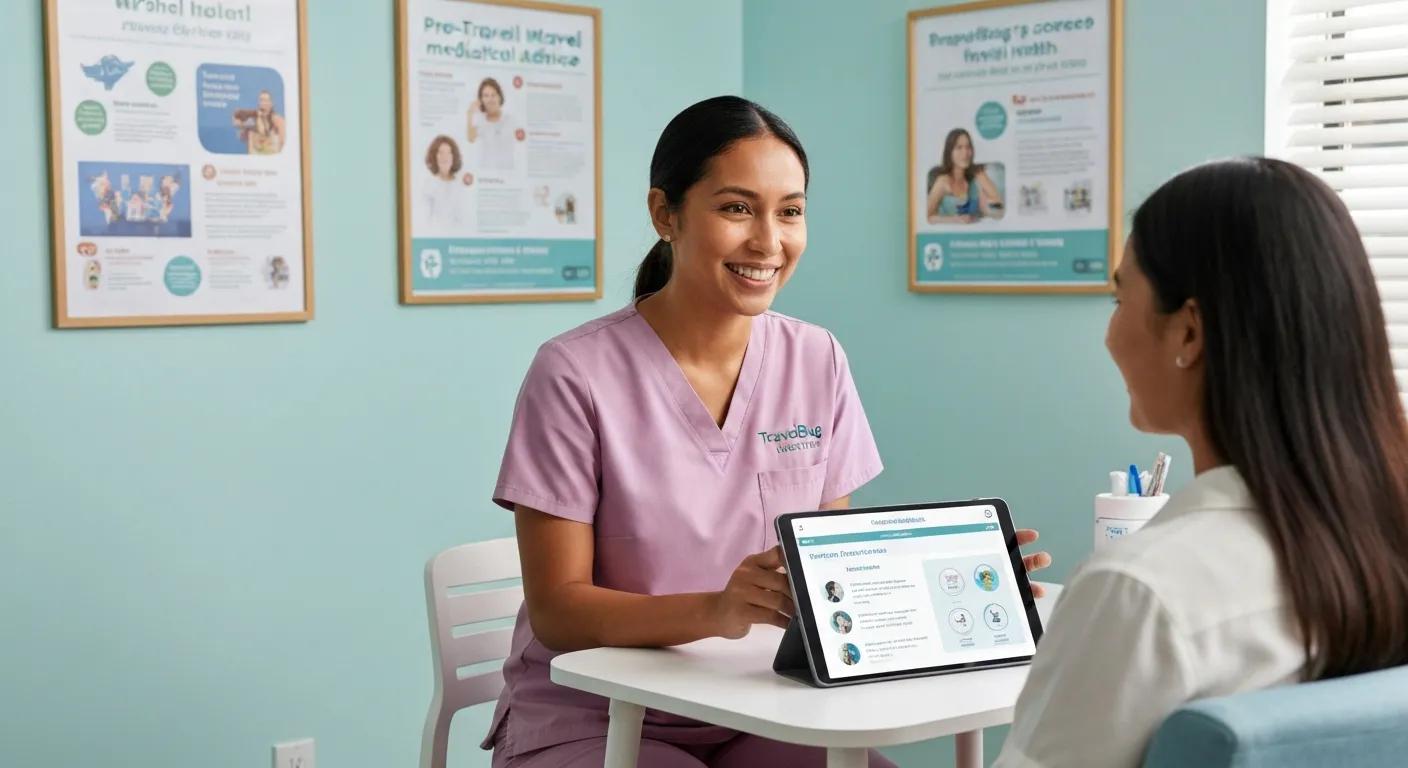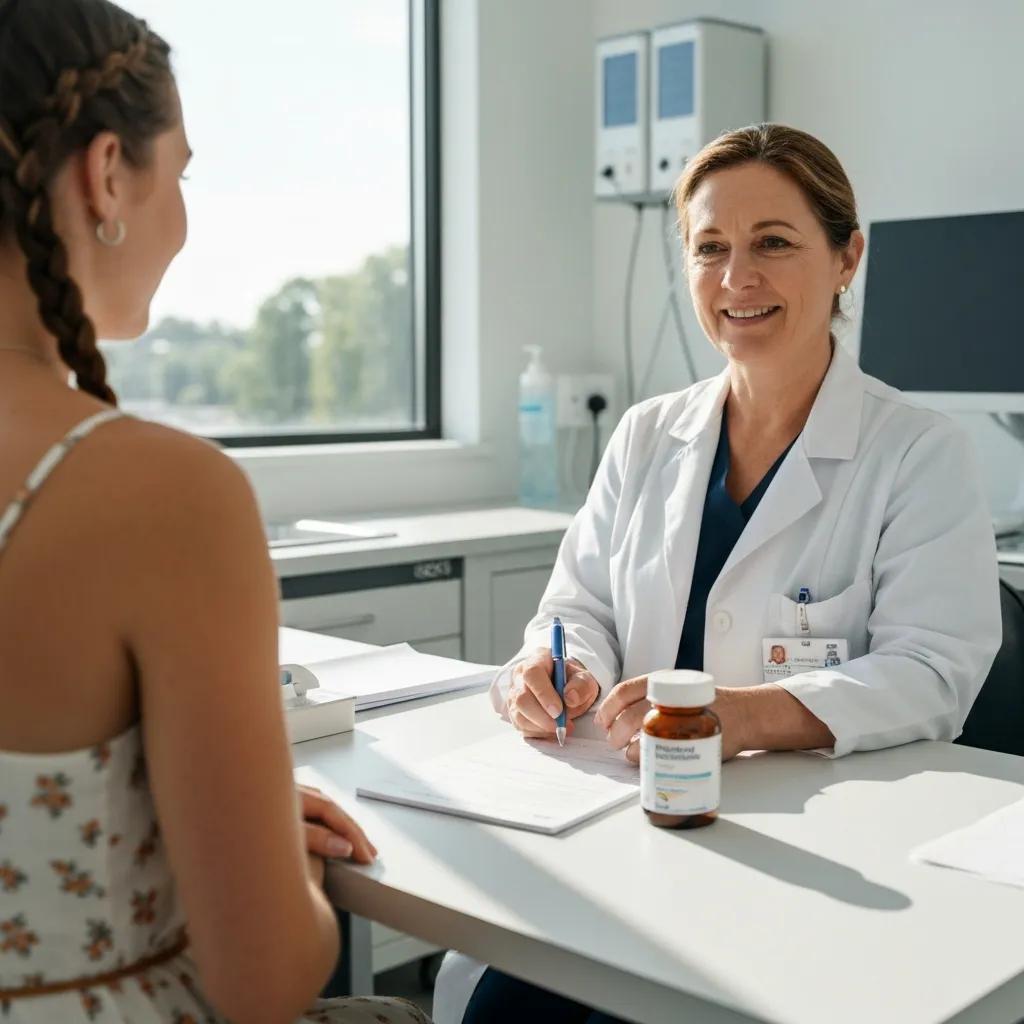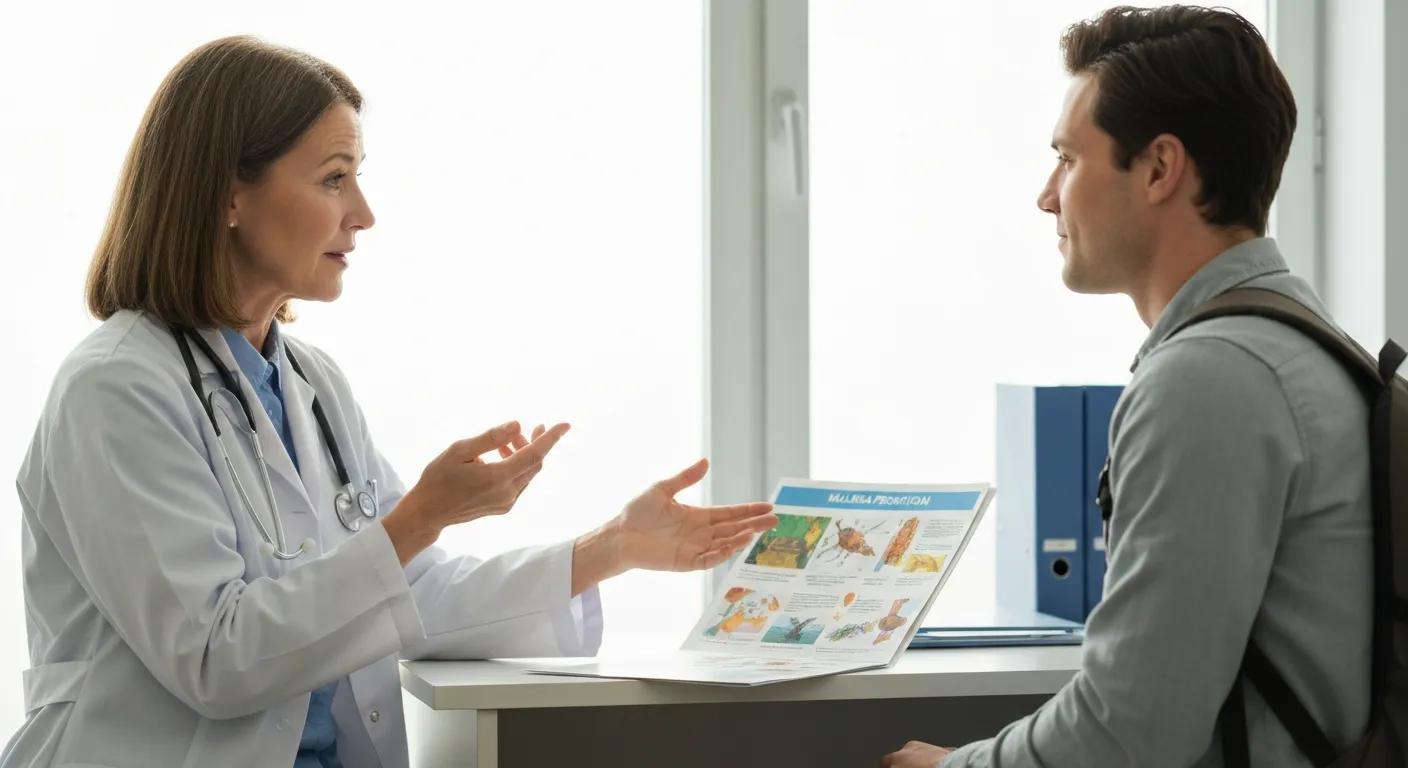Protect Yourself: Malaria Medication at TravelBug Health
Malaria Medication in Scottsdale: Personalized Travel Health Consultations at TravelBug Health
If you’re traveling to areas with malaria risk, clear, destination-specific advice on prevention and antimalarial medication is essential before you go. This guide explains what malaria is, how people get infected, and why prophylaxis matters. We’ll walk you through a personalized risk assessment, compare common antimalarial options, and outline practical insect bite-avoidance measures. TravelBug Health delivers expert, tailored consultations and can prescribe or dispense antimalarial medicines as part of your pre-travel plan. Many travelers underestimate how much risk varies by region or choose a drug without considering medical history, pregnancy, or drug interactions — this guide helps you match your itinerary and health profile to the safest, most practical prophylaxis. You’ll learn how malaria is transmitted, recognize red flag symptoms, what to expect in a travel-medicine consultation, how major drugs work and their precautions, and straightforward non-drug strategies to reduce mosquito exposure.
What Is Malaria and Why Is Prevention Important for Travelers?
Malaria is a parasitic infection caused by Plasmodium species and spread by infected Anopheles mosquitoes. Preventing malaria infection typically requires both medication and consistent bite-avoidance. For travelers, malaria prevention medication (also called prophylaxis) lowers the chance of severe illness, hospitalization, and long-term complications from Plasmodium falciparum and other common species. Prevention matters because symptoms can worsen quickly and because local drug-resistance patterns and transmission intensity change over time. Knowing how malaria spreads, typical incubation periods, and which destinations are highest risk lets you plan effective prophylaxis and protective behaviors well before departure.
How Is Malaria Transmitted and What Are the Symptoms?
Malaria spreads when an infected Anopheles mosquito bites a person and injects Plasmodium parasites that invade red blood cells and cause systemic illness. Early signs usually include fever, chills, headache, muscle aches, and general fatigue; these can appear days to weeks after exposure depending on the species. Severe malaria can lead to organ dysfunction, severe anemia, or cerebral (brain) involvement and requires urgent medical attention. If you develop a high fever after visiting an endemic area, seek care promptly. That’s why both pre-travel prophylaxis and post-travel awareness are important.
Which Destinations Have the Highest Malaria Risk?
The highest risk is in sub-Saharan Africa for Plasmodium falciparum, with ongoing transmission in parts of South and Southeast Asia, Oceania, and some areas of Central and South America. Risk can vary within countries and by season. Whenever possible, plan prophylaxis 4–6 weeks before travel so medications and any needed vaccines can be started on schedule. Short urban stays often carry lower risk than rural or forest travel, but activities like camping, night-time outdoor exposure, or prolonged stays increase vulnerability. Use current public health advisories and destination-specific guidance close to your travel dates when making prophylaxis decisions.
How Does TravelBug Health Provide Personalized Malaria Risk Assessments in Scottsdale?

Our personalized risk assessment looks at your full travel plan — dates, destinations, activities — plus your medical history, current medications, and special considerations such as pregnancy or other medical conditions. We start with an intake of travel dates and locations, then review your immunization status, chronic conditions, and drug allergies to spot contraindications or interaction risks. TravelBug Health is a Scottsdale-based travel clinic offering tailored pre-travel consultations, travel vaccinations, and travel medications (including antimalarials). Booking at least 4–8 weeks before departure gives us time to start medications and plan any required vaccines.
What Happens During a Malaria Prevention Consultation?
A prevention consultation starts with a structured intake that records your destinations, travel timing, current medications, vaccine history, and any relevant conditions. The clinician evaluates regional risk patterns, reviews antimalarial options, and explains likely side effects, adherence requirements, and exact start/stop timing around your trip. We can prescribe or dispense medications in-clinic and provide written guidance on what to do if symptoms appear during or after travel. The visit ends with a personalized travel-health plan combining medications, vaccinations, and bite-avoidance measures tailored specifically to you and your itinerary.
How Does TravelBug Health Tailor Medication Recommendations?
Our clinicians consider regional disease patterns, duration of travel, your medical history, pregnancy status, age, and how well you’re likely to tolerate a drug when selecting an antimalarial. For short trips to high-risk areas, daily agents with shorter post-travel courses may be preferred; for extended stays we’ll factor in cost, adherence, and side-effect profiles. We also incorporate your preferences — for example, avoiding photosensitivity or neuropsychiatric side effects — and select alternatives when contraindications exist. This individualized approach reduces adverse events and improves adherence, which in turn increases the protection you get from prophylaxis.
What Are the Best Antimalarial Medications Available at TravelBug Health?
The “best” antimalarial depends on local resistance patterns, your medical profile, and practical factors like timing and tolerability. Common medication options we discuss include atovaquone‑proguanil (Malarone), doxycycline, and sometimes mefloquine (Lariam). Each medication has a distinct mechanism of action, dosing schedule, and precautions that we match to your circumstances. Below is a concise comparison to help guide the clinician–patient discussion during your visit.
- Key factors when choosing prophylaxis include local disease patterns, parasite resistance, trip length, and medical history.
- Your lifestyle and likelihood of taking medication as directed influence whether daily or weekly dosing is better.
- Pregnancy or interacting medications require specialist guidance and alternative plans.
These comparisons clarify why a clinician might recommend one agent over another and when specialist consultation is recommended.
How Do Common Antimalarial Drugs Like Malarone and Doxycycline Work?
Malarone pairs atovaquone and proguanil to impair parasite mitochondrial function and DNA synthesis, offering effective protection against many Plasmodium strains with a shorter post-travel course. Doxycycline works by blocking protein synthesis in the parasite; it’s broadly effective and cost-friendly but requires strict sun protection because of photosensitivity risk. Both drugs must be taken according to their pre- and post-travel schedules — Malarone typically for 7 days after return and doxycycline for 4 weeks — to ensure full protection against blood-stage parasites. Knowing how each works helps you anticipate side effects and follow directions that maximize safety and effectiveness.
What Are the Possible Side Effects and Precautions of Antimalarial Drugs?
Common side effects include gastrointestinal upset and, with doxycycline, photosensitivity; mefloquine has been linked historically with neuropsychiatric reactions. Serious reactions are rare but possible. Some agents are contraindicated in pregnancy, certain cardiac or psychiatric conditions, or with specific drug interactions; clinicians screen for these during your visit. Stop the medication and seek care for severe allergic reactions, a high fever despite prophylaxis, or new neurologic symptoms. Prompt reporting and clinician follow-up protect your safety and allow quick changes to your plan if needed.
How Can Travelers Complement Medication with Other Malaria Prevention Strategies?
Medication is a critical layer of protection, but combining prophylaxis with consistent bite-avoidance drastically reduces infection risk. Effective non-drug measures include EPA‑recommended repellents, insecticide-treated bed nets, permethrin-treated clothing, and behavioral steps like avoiding outdoor activity during peak mosquito hours. Pack appropriate repellents, choose lodging with screens or air conditioning when possible, and layer protections in high-risk settings — medication plus behavior gives the most reliable defense against malaria.
What Mosquito Bite Prevention Methods Are Recommended?

Use the checklist below to complement drug prophylaxis with practical bite-prevention steps.
- Use EPA‑recommended repellents with DEET (30–50%) or Picaridin (usually 20%) on exposed skin and reapply according to the label.
- Sleep under long‑lasting insecticidal nets in rural or open-air lodging without effective screens.
- Treat clothing and gear with permethrin before travel or buy pre-treated items to reduce mosquito landing and biting.
- Plan outdoor activities to avoid dusk–dawn peak hours when Anopheles mosquitoes are most active.
Noting mosquito biting patterns helps shape practical and effective prevention plans.
Mosquito Biting Rhythms and Malaria Transmission: The Impact of Nutritional Status
Vector-borne transmission aligns with daily activity rhythms of blood-feeding insects. Strategies such as insecticide-treated bed nets (ITNs) are highly effective because they target the nocturnal biting behavior of Anopheles mosquitoes, malaria’s main vectors. However, changes in biting times — for example, shifts to earlier or later hours when people are less protected — can reduce ITN effectiveness. Researchers have proposed that factors like nutritional status and food availability may drive these behavioral shifts, since ITNs limit mosquitoes’ access to human blood. Understanding such dynamics is important for designing and maintaining effective control measures.
Biting time of day in malaria mosquitoes is modulated by nutritional status, 2025
| Prevention measure | Type / use case | How-to / effectiveness |
|---|---|---|
| Topical (skin) repellent | Chemical barrier | Apply DEET or Picaridin per label; reapply after sweating or swimming |
| Bed nets | Physical + insecticidal barrier | Use long‑lasting insecticidal nets over sleeping areas; tuck and secure under the mattress |
| Permethrin‑treated clothing | Fabric treatment | Treat clothing and gear before travel or buy pre-treated items; remains effective for several weeks and through several washes |
Are Malaria Vaccines Available and What is Their Future Outlook?
Malaria vaccines are becoming available but, as of late 2025, their use and availability vary by region and target groups. WHO‑recommended vaccines like Mosquirix and R21/Matrix‑M are currently used primarily in childhood immunization programs and only in countries where malaria is endemic. For most travelers, vaccines are not yet a replacement for drug prophylaxis because current approvals and supply focus on pediatric public health programs rather than routine traveler protection. Ongoing pharmaceutical advances and investigational agents suggest vaccine roles may expand in coming years, but for now travelers should rely on established prophylaxis and speak with a clinician about any vaccine options that might apply to their trip.
TravelBug Health’s Scottsdale clinic offers expert travel-health advice, vaccinations, and antimalarial prescriptions or dispensing as part of a coordinated prevention plan. If you want a tailored plan that maps your itinerary, health history, and medication options, please schedule a pre-travel consultation well before departure.


